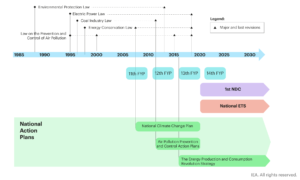Why Carbon Credit is Important
Carbon Credit is Important
Carbon credit is an important part of a market system for limiting greenhouse gas emissions. These credits are purchased by companies that need to offset their CO2 emissions. The credits can then be used to finance projects that remove carbon dioxide from the atmosphere. They are generally sold in units of one tonne of carbon dioxide.
In a cap-and-trade system, the quotas for emissions are set by the carbon credit exchange countries that sign the treaty. If a company exceeds its quota, it can purchase extra credits and sell them to other businesses. This allows for more flexibility in planning. There is a cap on the number of tons of emissions that can be emitted and companies are encouraged to reduce their overall emissions.

A voluntary carbon market is gaining traction as a means of limiting global warming. Many business leaders have set ambitious commitments to decrease greenhouse gas emissions. As a result, the volume of carbon credits is reaching all-time highs.
Why Carbon Credit is Important
To create a market for these credits, a group of environmental advocates and business leaders formed the nonprofit Verra. The group has developed a carbon standard and a registry system to verify projects. It has registered almost 796 million carbon units worldwide.
Voluntary carbon credits have been criticized for lacking transparency. Many critics say the lack of transparency makes it difficult to know whether the money that is being paid for the carbon credits will be used for good causes. For example, one investment firm pays farmers to convert their fields into forests. But the trees may not be preserved and the land could be deforested in future generations.
Another group, the European Commission, found that 85 percent of the projects it reviewed likely did not meet their reduction claims. However, this does not mean that they were fraudulent.
In order to be approved as a project, the emission reduction must be verified. The verification process requires proof that the reductions are real and do not come from incomplete or inaccurate accounting.
Verra’s carbon standard includes independent auditing. It also has a registry system for each project type. By creating standardized products and processes, it can facilitate more scale and liquidity in the voluntary carbon market.
One of the biggest concerns about the voluntary market is the lack of reference data. The lack of accurate and detailed information about the amount of money spent is a major barrier to the growth of the market. However, the UN Environment Programme issued a report on carbon markets and found that the market is growing rapidly.
The Kyoto Protocol has a standardized process for ensuring that any investment is directed to legitimate sustainable carbon reduction schemes. It has also created a flexible mechanism to help countries achieve their emissions targets.
The simplest way to understand how carbon credits work is to picture the real estate market. Each project has a certain number of permits that the operator has to release. Once these are used, they are retired.